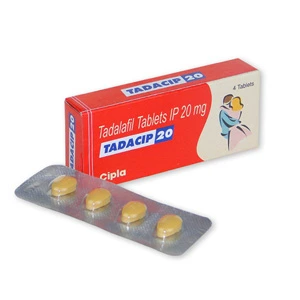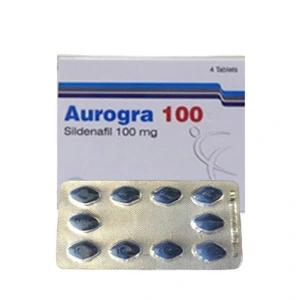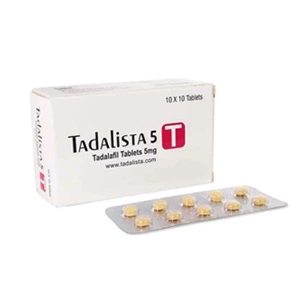Erectile Dysfunction Medicine for Men with ED Symptoms
Erectile dysfunction (ED) is one of the most common male sexual disorders characterized by the inability to get or sustain an erection sufficiently hard and long enough for sexual performance. In the United States, ED is common, affecting more than 15 million American men. Also called male impotence or sexual weakness, ED can be caused by a variety of factors, including vascular, neurological, psychological, and hormonal.
Common physical conditions responsible for causing ED may include high blood pressure, diabetes, high cholesterol, atherosclerosis, obesity, low testosterone, and prostate cancer treatment. Psychological conditions causing ED include performance anxiety, depression, prolonged stress, relationship issues, and other mental health issues. Certain medications can cause ED, such as antidepressants. Smoking and alcoholism are also common causes of ED.
More often not, impotence is associated with cardiovascular disease, especially in men who have metabolic syndrome. It has been found that quitting smoking, regular exercising, losing weight, and having good control over blood sugar, blood pressure, and cholesterol are effective lifestyle interventions for men with ED.
Fast Facts & Stats on Erectile Dysfunction
- Erectile Dysfunction could be a potential indication of some serious underlying health problems, such as heart disease, diabetes, multiple sclerosis, high blood cholesterol, and neurological issues.
- Some men with ED may actually not have ED. In some men, ED is more of a psychological problem. They may fail to get an erection due to poor mental health conditions.
- Psychological stress can cause ED and vice versa. When men are embarrassed or frustrated by their inability to perform, it could become more difficult for them to get rid of ED.
- Men with erectile dysfunction can still have orgasms. You do need a firm erection to achieve orgasms. Also, men with ED do not have low libido or sexual drive.
- Nearly 45% of men between the age of 65 and 74 experience poor erection. ED can affect about 26% of men below 40.
Potential Risk Factors for ED
There are numerous risk factors for erectile dysfunction. Men above 40 have a significant risk associated with ED. Men with cardiovascular risk factors such as hypertension, hypercholesterolemia, diabetes, and coronary artery disease are also at risk of developing penile weakness. ED is one of the markers for future morbidity because it has a strong association with heart disease. In fact, studies have demonstrated that ED could be a precursor of cardiovascular events, such as heart attack or stroke. Therefore, men with ED should get screened for heart disease.
Other potential risk factors associated with ED include:
- Obesity and sedentary lifestyle
- Benign prostate hypertrophy (BPH)
- Depression and anxiety
- Smoking and alcoholism
- Peyronie's disease
Diagnosis of ED
The clinical evaluation of erectile dysfunction comprises of detailed history, physical exam, lab testing, and imaging testing.
History and Physical Exam: Doctors initially assess men by inquiring about their medical history and physical examination. They may ask men about their existing or past medical issues to determine the underlying cause. A physical exam is done to elicit any comorbidity associated with ED, such as high blood pressure, irregular pulse, Peyronie's disease, etc.
Lab testing: Experts may order a few lab works, which may include tests related to hormonal levels, especially testosterone, blood sugar, and lipid panel.
Others: Although detailed history, physical exam, and lab testing are enough to diagnose ED, some may need other imaging studies like a vascular evaluation of arteries and veins. Specialized vascular evaluation, such as penile duplex ultrasonography, could be useful at determining blood flow insufficiency in the penile organ.
Treatment of ED
Typically, ED treatment comprises lifestyle modifications, medical management, psychosexual therapy, and surgical intervention. In some men, psychotherapy is considered the first-line of ED treatment, while others are advised to undergo medical management with oral ED drugs. Rarely, some men require surgical intervention. In most men with a mild degree of ED, lifestyle medication would suffice the condition.
Lifestyle Modifications: Doctors often recommended lifestyle modifications in men with ED, which could reduce cardiovascular risk as well as ED symptoms. Even studies have found that most men who switched to a healthy lifestyle experienced a significant improvement in their erectile function. In addition, a healthy lifestyle reduces the risk of cardiovascular disease, eventually reducing the risk of ED. Recommended lifestyle medications include eating healthy, exercising, quitting smoking, and limiting alcohol intake.
Medical Management: Phosphodiesterase 5 inhibitors, such as sildenafil (Viagra), tadalafil (Cialis), vardenafil (Levitra), and avanafil (Stendra), are the first-line therapy for ED. The FDA has approved these oral ED drugs. These drugs inhibit PDE5, an enzyme found in high concentrations in the penile organ. When PDE5 is inhibited, the cGMP levels are increased, allowing the body to release nitric oxide, a substance that increases blood flow to the penis for an erection. The FDA approved sildenafil in 1998, tadalafil and vardenafil in 2003, and avanafil in 2012.
Surgical Intervention: In some men who cannot use oral ED drugs due to the risk of side effects, an invasive therapy like penile prosthesis or penile revascularization surgery is recommended. A penile prosthesis is a third-line treatment for ED. In penile vascularization surgery, doctors repair arterial blockage and penile venous ligation.
Psychotherapy: Men with ED due to underlying psychological conditions need psychosexual therapy, which includes counseling. Talking with an expert could help overcome the fear of performing well in bed. It could also help overcome anxiety, the stress of making love, and the feeling of guilt. Counseling does help men with psychogenic ED.
Conclusion
Erectile Dysfunction can significantly limit a man’s quality of life. Given the increased incidence and prevalence of ED among aging men, addressing the potential risk factors and making lifestyle modifications, along with oral therapies, will extenuate the overall impact of ED.
Due to the strong association between ED and several comorbidities, especially heart disease, physicians often encourage men to get screened for comorbid conditions, which can not only affect their quality of life but also increase their mortality rate. While ED drugs like Viagra, Cialis, and Levitra exist, additional treatments, interventions, and gene therapies are being developed to address ED.


















